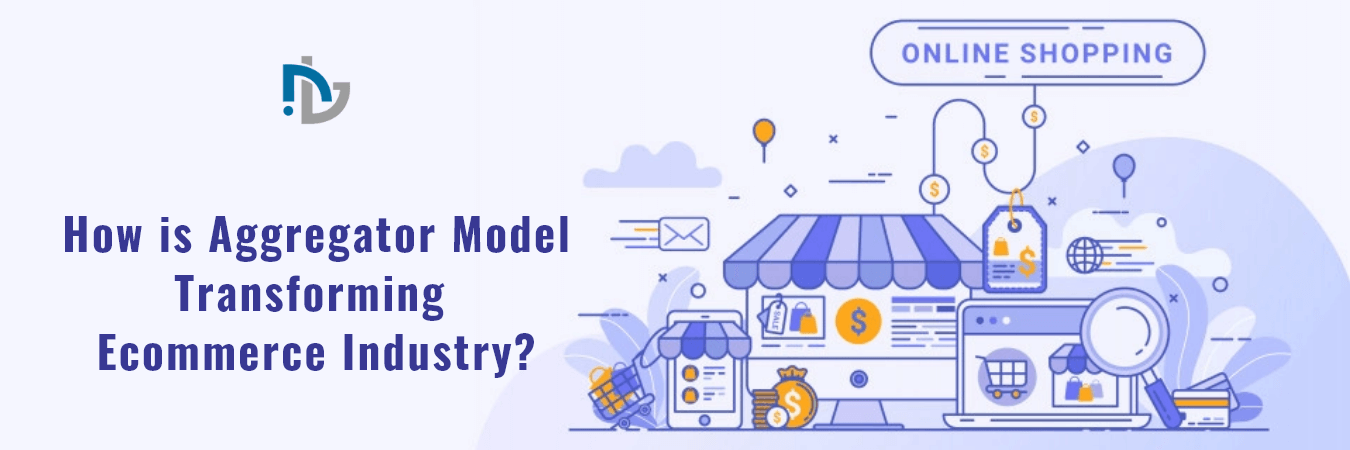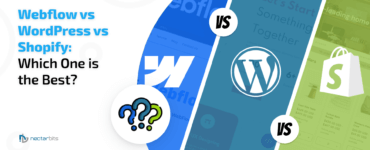It’s a matter of not more than two decades when online commerce made inroads into the market. Afterward, a series of changes are witnessed in the eCommerce landscape, that’s eCommerce store, then mobile-responsiveness, then mobile commerce, and now, the aggregator model is taking center stage.
The aggregator model is revolutionizing eCommerce app development entirely at break-necking speed. The merchants are embracing the model at scale, which involves aggregating or collecting goods rather than buying or storing products at the warehouse.
It helps in improving the shopping experience by matching up the customers’ preferences, investment capacity, and search types with prices and specifications. It enables delivering personalized customer experiences and things that fit the needs. The aggregator model aims to create an Ecommerce environment that helps in cost-effectively attracting maximum customers.
Uber, Oyo, Ola, and other aggregators played a vital role in driving disruption to the Ecommerce space. Ecommerce aggregators collect data from all the e-stores and compare prices to easily identify what’s the best fit for them and make the purchase decisions a breeze. Flipkart, Amazon, eBay, and others are aggregators’ names to a few.
The benefits are immense.
Take A Look at How Aggregator Model Revolutionizing the E-commerce Industry:
Filling A Void Between Customers and Sellers
Ecommerce stores have changed the way people live and shop. However, the multiple options have made the decision-making process difficult. That’s where aggregators help by providing a platform to sellers from all over the country as it enables product browsing from distinct sellers in one place. The aggregators provide technology stack and advertising opportunities for sellers’ store setup. Plus, the aggregator platform facilitates transparency in price, payment, discounts, shipping information, and other guarantees because simultaneous comparisons are possible. It saves a lot of time and dollars that are otherwise spent on a lot of back-and-forths.
Read more: The Complete Guide to Programming Applications for Android
Shopping Becomes a Breeze
Ecommerce stores have already made shopping hassle-free, but still, the users need to visit several websites in the search of a product. The aimless browsing confuses the users and thus, shopping never gets completed. The aggregators like- Amazon provides more than one website so that users can easily find what they want. But they offer limited choices that don’t overwhelm the users. They provide several filters to narrow down the search and make the best suggestions for the searches or preferences. Besides, some websites also facilitate product comparisons from various sellers.
Bid A Good Bye To Limitations
Shopping in leisure time and at the place that customers want makes shopping handy. In the mobile age, it’s feasible to facilitate mobile shopping. The aggregator Ecommerce store are mobile responsive that allow users to browse and buy items when they are on the go or inside their homes. Getting the store listed on the aggregator’s website is great, which retail merchants must avail of.
The Possibility of Innovation Is More
The aggregator model aims to render outstanding experiences to the customers by investing in technology and innovation. The unparalleled creativity that AI technology leverage provides in product promotion and UX engineering is excellent. Aggregator Ecommerce stores embrace AI technology for recommendations customization based on users’ browsing patterns, purchase history and demographics.
How aggregator model benefits retail merchants?
Analyze data at a speed
The aggregation model enables data collection and analysis quickly and efficiently combining the contributors’ efforts. It helps businesses to make data-driven decisions based on relevant information without reinventing the wheel in outdated data.
Ensure data security
Aggregator websites store data centrally on the cloud, which ensures data privacy and keeps the data safe from leaks and cyber-attacks. The aggregators offer a private network for the customers when they provide data, which makes them the most secure solution.
Identify global trends
Stepping in with the trends is all-important to stand in the market and stay ahead of the game. That’s where aggregators play a unique role in helping merchants to stay tuned with the changing market trends and evolving customers’ expectations. The aggregator websites scour multiple resources including social platforms and organize the data in an understandable form.
Cost-effectiveness
Everyone wants to purchase the item at low costs. That’s why customers search for deals and offer to buy the products at a reasonable rate. It incurs a lot of time investment followed by creating multiple accounts on eCommerce stores. With an eCommerce aggregator, the users are only required to log in to one site and get to know about everything.
Uplifted user experience
Easy and better access to a wide range of relevant information always attracts customers. In the same way, aggregator stores are organizing the content and make it accessible to end-users, which improves user experience.
Revenue model to make bundles
There are two types of business models that aggregator websites leverage to make the most out of the investment. It primarily depends on business offerings types. Take a look at them:
Commission model
This model includes charging a fixed percentage of commission from all the transactions occurring on the platform. Uber-like companies have garnered maximum success from transaction-based commission models. The merchants are likely to partner when they experience a surge in customer acquisition at a reduced cost.
Dynamic price model
This model works like- the Airbnb model, wherein the minimum prices are pre-set and rates are kept dynamic that may uplift according to season or business stage. The discounts put on the website also impact the final ROI.
The last word
The successful eCommerce aggregator platform development is a gold rush that generates several opportunities to increase conversion, sales volume, and ROI. Want to create a modern interface for your customers from scratch? Get connected with our business consultants that will help you how you can transform the website into a customized one that fits the purpose.









